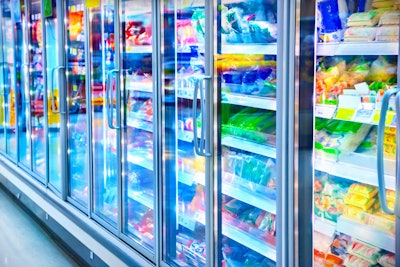
The cost-of-living crisis means consumers are experiencing the implications of rising prices; many are looking to make cutbacks in their food shopping as they struggle with other essential living costs. Because of this, many consumers will be re-evaluating the need for convenience products such as tinned food, frozen food and ready meals.
Recessionary spending
FMCG Gurus research shows that over four in 10 global consumers are unconfident in the state of the economy over the next 12 months. Furthermore, consumers feel their country is in a recession regardless of whether or not it is by definition. This means many will be adopting recessionary-style spending habits as they become increasingly concerned over rising living costs, including utility bills, food prices and petrol. Additionally, nearly one-third of consumers do not feel their household has adequate financial savings, meaning they will feel vulnerable to rising prices and be further required to cut back on spending.
Consumers also feel that food prices are on the rise. FMCG Gurus research shows that 85% of global consumers believe food and beverage prices have risen over the last 12 months. Consumers believe these price increases are across everyday items such as fruit, rice, dairy and pasta; this means consumers will feel restricted in other areas as they struggle to keep up with the rising costs. With consumers feeling that everyday essentials are on the rise, they will adopt a mindset of needing to minimize spending when purchasing products, being drawn to economical offerings, something that previously may have been seen as a last resort.
Recessionary spending includes consumers shopping around to find the best deal, and becoming less brand loyal. This means brands can no longer rely on heritage alone to drive and maintain sales. Consumers are most likely to be demonstrating reduced brand loyalty in the soft drinks and frozen food sectors, areas deemed economical, with consumption being driven by routine and inertia.
Convenient and economical alternatives
FMCG Gurus research also shows that around one-quarter of consumers plan to buy more frozen foods over the next 12 months. Products that are frozen and tinned are typically associated with being more affordable but not offering the same level of nutrition as their fresh counterparts. Nearly one-quarter of consumers plan to buy more frozen foods over the next year, highlighting their desire to purchase more affordable foods that can be stored in bulk even if these foods are less nutritious. This means that brands need to encourage consumers to re-evaluate their attitudes toward such products, which can be done through promoting nutritional benefits of products.
FMCG Gurus research finds that some consumers see products that are convenient as being better value for money, which is important during a cost-of-living crisis. Consumers value their time, so saving time in preparation and cooking is key.
New opportunities for convenience food
In an era of uncertainty, brands can encourage consumers to change their perceptions associated with economical offerings. Items traditionally associated with being more affordable such as tinned and frozen should be associated with good value, not just being as cheap as possible.
Nostalgic products appeal to consumers in difficult economic times; consumers can often turn to products that remind them of the past and simpler times. FMCG Gurus research finds that four in 10 consumers have sought out products and flavors over the last 12 months that remind them of the past.
The ready meal category can also look to directly target those consumers cutting back on foodservice occasions. The current cost-of-living crisis means that consumers are having to reduce spending within the foodservice channel. However, consumers have high levels of self-entitlement and do not want to make sacrifices. As a result, they are seeking out more premium options at retailers as a form of compensation. This includes premium ready meals and products that complement them, such as alcoholic beverages, soft drinks, cakes and pastries.



















